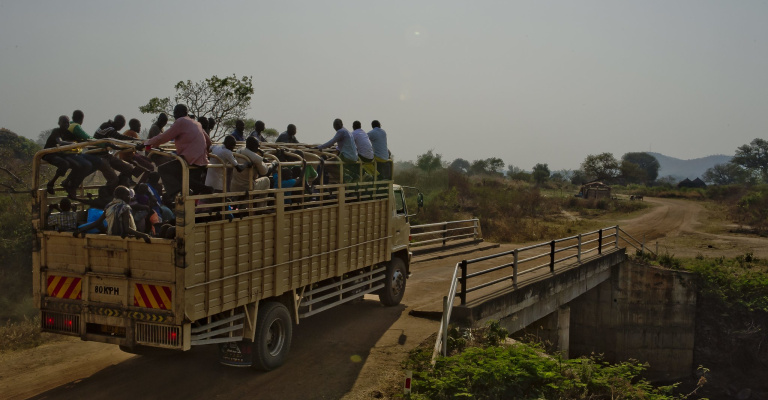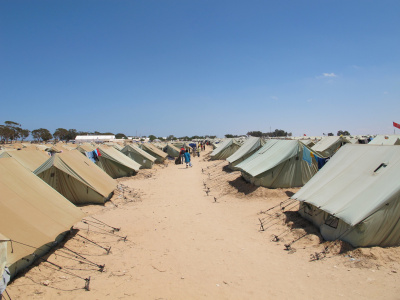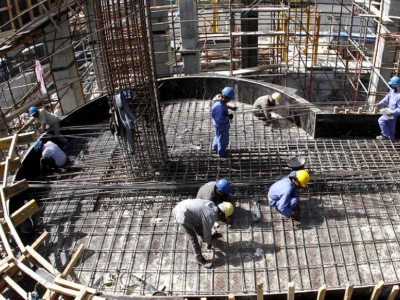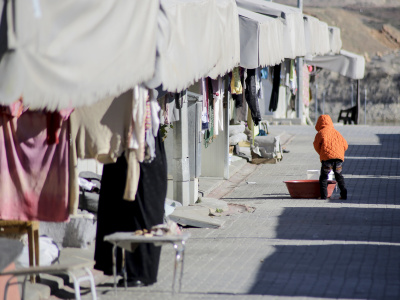
Crafting the African response to European external migration policies
Migration is a sensitive topic that leads to heated debates and political divisions in almost all countries. While several regional and continental migration agreements exist, states take final decisions on which and how many migrants to admit under the purview of national sovereignty.
But countries need to cooperate to implement their migration policies effectively. For African countries, this cooperation may result in conflicting national and regional interests. They need to push back against outsourced external migration policies by European countries and focus on long-term perspectives that promote African mobility within the continent.
The European Union (EU) has increasingly externalised the implementation of its migration-related policy objectives to third countries through a number of agreements and funding mechanisms. This helps the reduce the number of irregular arrivals in the EU and contributes to the legitimacy and efficacy of the EU’s internal migration system.
EU member states have already used similar strategies when faced with high number of irregular migrants, but this wave of externalisation is more forceful. It combines cooperation agreements and funding instruments, uses aid conditionalities and leverages foreign and security policy dynamics to address migration issues.
There has been no shortage of criticism of such strategies: it outsources moral and political responsibility, trades development aid for migration control, and promotes cooperation on migration with autocratic regimes and rebel groups – for example in Sudan and Libya, who perpetuate human rights abuses of migrants. All this is happening while the EU continues to claim a moral high ground when it comes to human rights.
Externalisation and duplicity in migration policies
Most African countries agree to externalisation for different reasons, broadly ranging from political motivations based on power dynamics with the EU and European countries to an increasing domestic importance of migration in African states. Economic motivations are largely linked to available funds from development cooperation that are increasingly diverted to migration management.
Diplomacy is equally important, as migration increasingly shapes the foreign policy interests of African countries, which are closely linked to security challenges. African states respond to the European externalisation agenda either through full collaboration, partial cooperation (for example by signalling willingness to cooperate, but being apathetic to implementing agreements) or outright disregard.
The interactions between African and European countries on migration cooperation reveal a duplicity of actions and motives in migration governance, usually with contradictory effects. European states support African continental and regional agendas promoting free movement of persons on the continent. At the same time, they promote policies that weaken these agendas through bilateral cooperation with African states aimed at constraining movement of people.
African states on the other hand commit to regional and continental agendas that promote free movement of persons – examples are the ECOWAS free movement agenda and the African Union free movement protocol. In parallel, through bilateral cooperation with European states and motivated by domestic interests, they implement policies and practices that de-prioritise prior commitments.
In West Africa, duplicity and externalisation of migration policies is clearly visible. Trade-offs between internal security and funding for migration-related activities motivate states to act with dual intentions. A case in point is Mali. The Malian government, overwhelmed by internal security challenges, receives support from the European Union and its member states, but is less interested in curtailing the migration of its citizens. Support for security-related projects (such as the CDSP and G5 Sahel) in Mali is now strongly linked to addressing irregular migration.
African governments equally use migration cooperation to promote their legitimacy at the international level. In Niger, restrictive migration practices, such as frequent immigration checks and deportation of ECOWAS citizens, amounts to rebuilding national borders between countries. This undermines the space for free movement, as most deportations contravene ECOWAS’ free movement protocols. In extreme cases, it pitches citizens and local actors against state authorities.
Civil society actors in Niger and Togo have been vocal against the human rights breaches and disregard for regional commitments that were the result of implementing EU-funded projects on migration management and border control. The short-lived results of externalisation achieved through full cooperation between African states and the EU is viewed as successful by both parties – particularly in terms of achieving numerical targets. The reduced number of arrivals of irregular migrants from Africa in Europe can arguably be linked to the ‘successful’ externalisation of the EU’s policies in Niger and other Sahel countries.
The dilemma for African countries therefore is how to pursue these parallel interests and what trade-offs there are moving forward.
How can African countries respond to externalisation?
Promoting regional free movement of persons through regional and continental frameworks is key to the long-term development and economic growth of African countries. The free movement protocol provides long-term opportunities of regional integration, the benefits of which are likely to be shared by ordinary citizens. This means African states need to prioritise regional commitments with long-term benefits over short-term priorities, that do not contribute to more sustainable change.
African actors – both state and non-state – operating through the African Union (AU) and regional economic communities should present a consolidated front in responding to external interests, with a view to promoting African agendas on free movement.
African states should equally prioritise aligning their interests and speaking with one voice, for example through the Africa-EU migration and mobility dialogue or in any future partnership currently under discussion. This should be strengthened through the increased participation of member states to ensure policy alignment and coherence between European and African countries.
Continental and regional initiatives geared at providing long-term benefits of migration and development through promoting labour mobility in Africa should be strengthened and can be linked to skills mobility programmes. Examples are the Joint Labour Migration Programme Priority and regional talent mobility programmes, which link supply and demand for labour and skills across labour markets in Africa.
The African Union was prompt in responding to EU member states’ suggestions to create disembarkation platforms or other solutions to forced displacement in African countries. However, there has not been any strong statement by the African Union Commission (AUC) in response to the externalisation of EU migration policies in African states through bilateral agreements and memoranda of understanding.
The AU needs to take this decisive policy direction to reinforce the collective will of African states to promote their political and economic agenda. The AUC and regional organisations should take a firm stance against measures that will restrict free movement of people on the continent.
Although the space for engagement of civil society organisations in governance is shrinking globally, countries have elaborated strategies to enhance their participation in migration governance. Civil society organisations are also increasingly creating space for themselves to promote their participation in migration governance. They should be encouraged and supported to play a monitoring and accountability function.
Actors such as diaspora groups and non-government organisations are crucial to ensure the human rights of migrants and freedom of citizens are protected. For example, in Mali, the diaspora has prevented the adoption of restrictive migration policies through its engagement with the government.
Externalisation of migration policies will continue to be the norm in international migration, especially as the EU struggles to find a more coherent way to address the realities of migration. This places more urgency on African countries to align their migration policies towards achieving long-term solutions.
Current EU strategies on migration from Africa will have an impact on development on the African continent. African countries and European partners should therefore prioritise long-term migration solutions through regional and continental avenues, as these balance the benefits of migration and promote safe and regular pathways within Africa.
The views are those of the author and not necessarily those of ECDPM.




